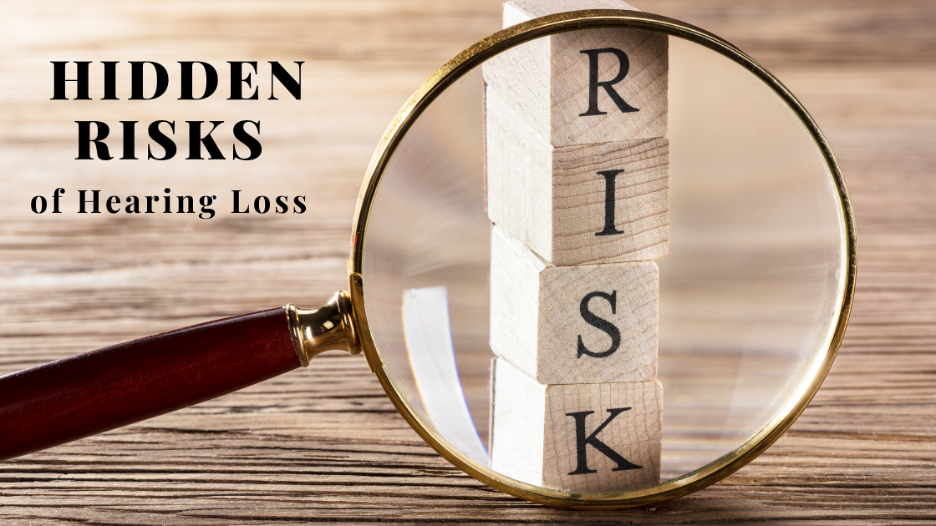
If you have hearing loss, or know someone who does, you’re likely familiar with some of its effects on everyday life. What many people don’t know, however, is that there are hidden risks of hearing loss that aren’t so obvious. Let’s take a look at them and see how these risks can be mitigated to promote healthier hearing.
What are the hidden risks of hearing loss?
While hearing loss has often been linked to other health conditions like diabetes and obesity, Johns Hopkins Medicine has identified three hidden risks of hearing loss that are just as concerning:
1. Balance problems – If you have hearing loss, your brain is under significant stress trying to take in and process auditory stimuli. This can create cognitive overload, taking away from the resources needed to maintain balance. This often means that individuals with hearing loss have a higher risk of accidental falls.
2. Difficulty walking – Whether you realize it or not, your brain picks up subtle cues as you walk, helping you to process environmental stimuli and walk safely. Hearing loss can dull your senses, however, and interfere with safe movement.
3. Social isolation – This is perhaps one of the most common hidden risks of hearing loss. People who don’t hear well don’t participate in conversation as much, nor do they feel as comfortable interacting with people in larger gatherings or noisy places. Rather than learn how to overcome the issue, many people with hearing loss choose to stay home and isolate themselves from potentially difficult social situations. This can lead to dementia and cognitive decline.
5 Hearing Aid Myths You Shouldn’t Believe
One of the most common and effective ways to treat hearing loss is through the use of hearing aids. Johns Hopkins notes, however, that “although nearly 27 million Americans age 50 and older have hearing loss, only one in seven uses a hearing aid.”
That’s a staggering statistic. And, it’s not because these people couldn’t actually use hearing aids. Instead, they choose to believe these hearing aid myths:
1. “My hearing loss isn’t bad enough to warrant hearing aids.” The truth of the matter is that many people underestimate how much of their hearing is actually gone. The only way to know for sure is to schedule a hearing test, but many people with hearing loss wait 10 years or more before seeking help!
2. “Hearing aids are for old people.” There’s a little bit of truth to this one, mainly because hearing loss does often occur simultaneously with aging. However, using hearing aids can actually help you stay young. They can help you stay active, make you feel happier, and keep you socially engaged.
3. “Hearing aids are ugly.” Sure, they’re not as pretty as jewelry, but hearing aids have come a long way in recent years. In fact, new technology makes them work better than ever and some models, like Bluetooth hearing aids, have some really ‘cool’ features!
4. “It’s too hard to use hearing aids.” As with any technology, there IS a learning period with hearing aids. And, sometimes adjustments need to be made by your audiologist to make the devices work as intended. Either way, however, the effort it takes to find the perfect hearing aids and learn how to use them will be well worth it.
5. “Hearing aids are expensive.” This one isn’t actually a myth – hearing aids can be pricey. But, if you see them as an investment in your health, it’s money well spent. In addition, your health insurance provider may cover a portion of the cost.
Beat the hidden risks of hearing loss and choose treatment instead
The good news is that the hidden risks of hearing loss discussed above can actually be reduced if you decide NOT to let your hearing loss go untreated. Treatment doesn’t always include hearing aids, either.
Schedule an appointment with an audiologist to get a full hearing evaluation. Only then can the best treatment method be determined. So, what are you waiting for? It’s time to take charge of your hearing health today so you can hear well and live well!
Read the full article here.

